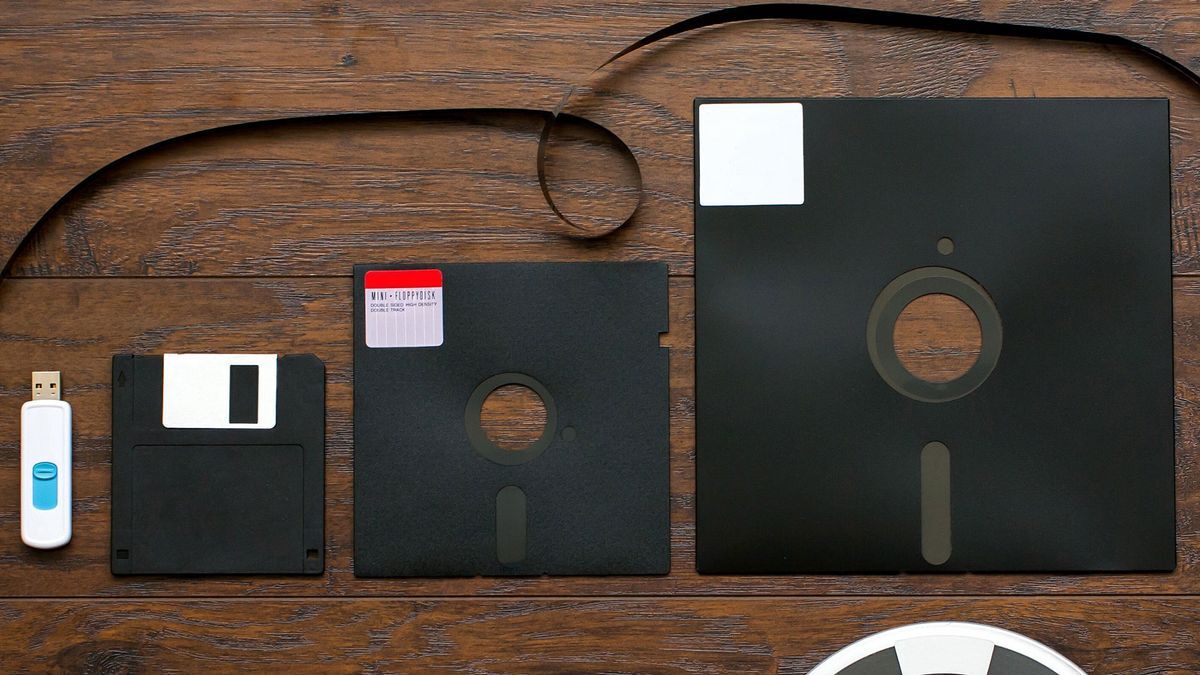The German Navy is searching for a new storage system to replace the aging 8-inch (20cm) floppy disks which are vital to the running of its Brandenburg class F123 frigates. According to an official tender document, the ideal answer to the German Navy’s problems would be a drop-in floppy disk replacement based upon a storage emulation system, reports Golem.de.
Germany’s Brandenburg class F123 frigates were commissioned in the mid 1990s, so it is understandable that floppy disks were seen as a handy removable storage medium. These drives are part of the frigates’ data acquisition system and, thus “central to controlling basic ship functions such as propulsion and power generation,” according to the source report.
It won’t be trivial to replace three decades old computer hardware seamlessly, while retaining the full functionality of the existing floppies. However, we note that other companies have wrestled similar problems in recent years. Moreover, there are plenty of emulator enthusiasts using technologies for floppy emulation solutions like Gotek drives which can emulate a variety of floppy drive standards and formats. There are other workable solutions already out there, but it all depends on who the German Navy chooses to deliver the project.



And the 8" were probably the cheapest.
So, as always in government, you get the minimum that satisfies the contract.
Here’s some useless retro crap: the 8" disks almost certainly cost more.
There was absolutely a reliability scale as you moved down the physical disk size: the 8 inch disks were more reliable than the 5.25, which were more reliable than the 3.5, due in large part to the market was requiring them to get cheaper as the drive tech matured, and thus you ended up with cheaper, less reliable media as you went along through the evolution.
40 years later, 8" disks nearly all read, 5.25" disks mostly all read, and 3.5" disks are an absolute crapshoot: I find that less than half of the ones I come across are still actually accessible, compared to about 90% of the 5.25" and 8" ones.
That experience of course has some personal bias, but that’s a story that holds pretty true talking to anyone who tries to archive old floppies, so it’s probably reasonable enough to use for actual data.
So, if you wanted the most reliable option, and since the military probably doesn’t care what it costs, you’d pick a 8" disk.
The old 8” floppy disks were more expensive but known for being incredibly reliable.
The newer 5.25” and 3.5” floppies used cheaper and mass produced coatings on the magnetic surface, plus the smaller and higher density tracks had less surface area per byte and less material to hold the signal.
The net result was the newer floppies often couldn’t be reliably read after a few years of use.
It’s not at all surprising they stuck with the more reliable system for so long.
It might have been selected just for reliability sake. That is how especially militaries usually want them. better to have a tested lesser product of the last gen, than to have the current gen wild card tech that may or may not have a intolerable amount of bugs and problems that could in a combat situation get the ship wrecked and the crew killed.
This is true. That is what you get when you combine governments nearly unlimited budgets with private profit seeking and very little to no oversight. It’s either audit the private contractor in everything all the time or have some state company or institution do the product or service for you.